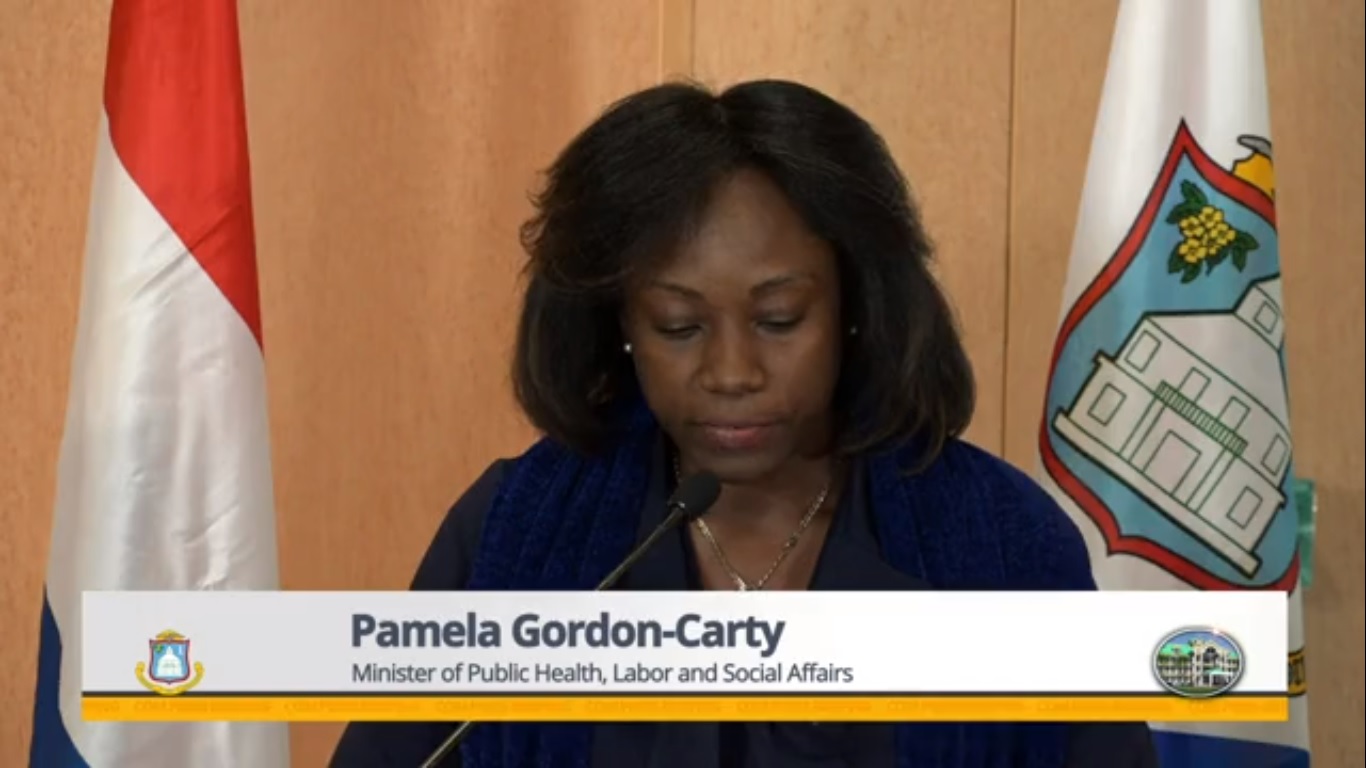Minister Gordon-Carty’s new conditions for an employment permit

PHILIPSBURG – There is a lot of discussion about the new work permit policy Labor Minister Pamela Gordon-Carty put into place per February 7. The Hospitality and Trade Association, the Timeshare Association, the Marine Trade Association and the Indian Merchants Association immediately rejected it and demanded that the minister withdraw the policy. So let’s take a step back and look at what is really going on here.
In her introduction to the policy, as published in the National Gazette, Minister Gordon states: “The aftermath of Hurricane Irma has seen many foreigners employed with companies on Sint Maarten. In addition, several companies even 2.5 years after Hurricane Irma are still continuously filing for labor permit renewals for foreign employees. Unemployment remains alarmingly high on Sint Maarten.”
Furthermore, the minister notes that “various occupations of the growing pool of registered jobless persons match the vacancies posted by employers.”
The policy-objective is simple: making sure that employers “comply with their legal obligations” and that they “exercise the requisite efforts” to fill their vacancies with unemployed locals.
Minister Gordon’s work permit policy mentions seven criteria employers have to meet.
First of all, employers are now expected to closely work together with the National Employment Service Center (NESC) “to fill all possible vacancies as much as possible with suitable jobless persons on St. Maarten.”
Furthermore, employers will have to obtain a list of suitable candidates from the NESC for all vacancies.
Thirdly, before applying for a work permit, employers must conduct job interviews with candidates presented by the NESC, in the presence of a representative of this center.
And then there is this one: “The National Employment Service Center will keep a ledger of all interviews conducted, stating the dates on which the interviews were held, the names of all participants and possible special observations/remarks. Within ultimately one week after all potential candidates referred by the National Employment Service Center to the employer have been interviewed, the National Employment Service Center will sent a copy of the ledger to the employer.”
Next, the employer will have to inform the NESC within four weeks after job interviews whether candidates are a match and whether a job has been offered and accepted.
The last requirement is that employers have to motivate rejections “adequately.” The NESC “at its sole discretion” could then force employers to conduct a follow-up meeting to discuss their decisions. Not complying with these requirements constitutes grounds for rejecting labor permit applications.
 The objective of this policy is obviously to limit the number of foreigners working in St. Maarten and to improve job options for locals – in itself a logical concept. But the question remains whether such a policy – that will put quite an administrative burden on employers – is really necessary.
The objective of this policy is obviously to limit the number of foreigners working in St. Maarten and to improve job options for locals – in itself a logical concept. But the question remains whether such a policy – that will put quite an administrative burden on employers – is really necessary.
The Social Economic Council (SER) had quite something to say about work permit policies back in 2013 when Cornelius de Weever, then Minister of Public Health, Social Affairs and Labor, asked for advice on the intention to establish a so-called counterpart policy. This measure was also designed to protect the local labor market.
The advice refers to the National Ordinance on Foreign Labor that went into effect in 2002. This ordinance determined that “a foreigner is only eligible for a job in St. Maarten when there is no skilled local candidate available.” In 2009, the counterpart-article was added to this piece of legislation.
It required employers to hire a local next to a foreign employee; the idea was to train this local within three years to a level where he or she would be able to replace the foreigner. Employers had to bear the cost of the training – and of course they had to pay two people for the same job.
The SER noted in its advice that “managing the influx of foreign labor can be done prior to issuing a work permit,” adding that “proper implementation and enforcement of the national ordinance on foreign labor – without the counterpart article – provides adequate safeguards to achieve its intended purpose.”
The SER also noted something that will also raise questions about Minister Gordon-Carty’s work permit policy: a lack of proper research. All surveys on employment were executed based on gender, age and place of birth, according to the SER. “It has never been clear what percentage of (youth) unemployment concerns Dutch nationals, or what the demand is for employees in terms of type of profession, required education and skills and the extent to which local employees can fulfill the demand.”
Furthermore, the SER-advice pointed out, if there are no qualified locals for a vacancy “it confirms that St. Maarten is facing challenges in educating its nationals to fulfill certain positions or that St. Maarten suffers a brain drain.”
Here is a SER-consideration concerning the counterpart-rule that fits neatly with Minister Gordon-Carty’s work permit policy: “This article will have a negative effect on St. Maarten’s business climate, considering that the supply on the labor market is strongly dependent on immigration.”
From the SER-advice, it appears that there are simple rules in place to keep unwanted foreign workers at bay. Before a work permit can be issued, foreigners must provide the labor department with a valid residence permit or with proof that such a permit has been requested. But to get a residence permit, the Immigration and Naturalization Department needs proof that the foreigner has sufficient funds.
Data the SER had at its disposal at the time of writing its advice show that just 21 percent of all employees were born on St. Maarten, 13 percent were born on other islands of the Dutch Caribbean and 66 percent were born elsewhere. The data stem from Ecorys, Economic Outlook Sint Maarten 2012-2013.
There is yet another little, yet important, loophole that requires attention. The SER-advice states that the executive order on foreign labor does not contain measures against employers who offer foreigners jobs against salaries below the minimum wage. According to the council, this ought to be grounds for refusing a work permit.
###
Related articles:
Opinion by Hilbert Haar: “Will Minister Gordon’s new work permit policy do any good?”
National Gazette 07 februari 2020






















